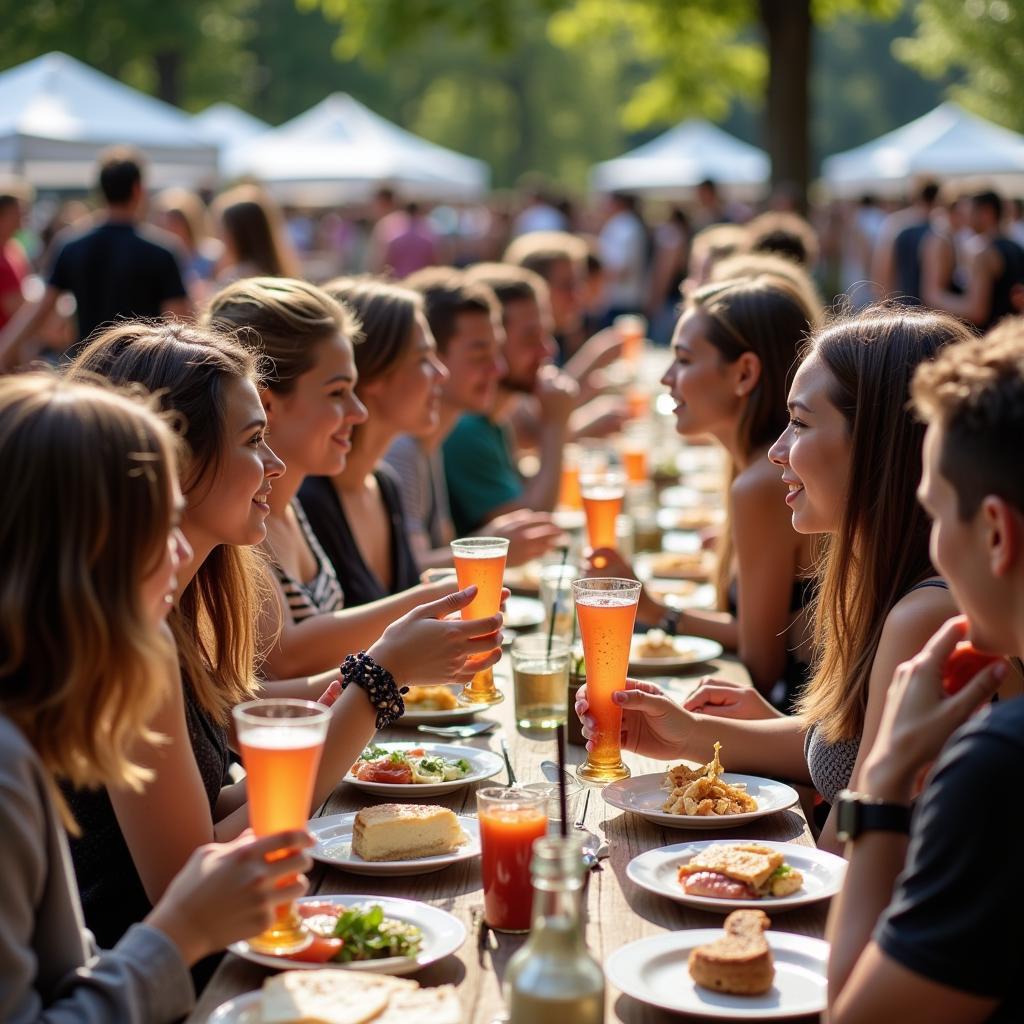“No Food Or Drinks Allowed” – we’ve all seen the sign, often accompanied by a crossed-out image of a burger and soda. But what does this common phrase really mean, and when are the rules flexible? This article delves into the nuances of “no food or drinks allowed,” exploring the reasons behind the restriction and offering tips on how to navigate these situations.
Understanding the “No Food or Drinks Allowed” Policy
The “no food or drinks allowed” policy isn’t arbitrary. It serves several crucial purposes, from preserving valuable assets to maintaining hygiene and safety. Let’s explore these reasons in detail:
-
Preservation of Collections: In museums, libraries, or historical sites, outside food and beverages can pose a significant threat to delicate artifacts. Crumbs, spills, and even humidity from drinks can damage priceless items. This policy helps protect these treasures for future generations.
-
Maintaining Cleanliness: Imagine a cinema filled with sticky soda spills or a library littered with food wrappers. “No food or drinks allowed” helps maintain a clean and pleasant environment for everyone. This is particularly important in places where large crowds gather.
-
Preventing Pests: Food remnants attract insects and rodents, creating unsanitary conditions. The “no food or drinks allowed” rule minimizes pest infestations, contributing to a healthier and safer environment.
-
Supporting On-Site Vendors: In some venues, like stadiums or concert halls, the policy supports the businesses operating within the facility. By restricting outside food and beverages, they encourage patrons to purchase from their concessions.
-
Safety Considerations: In specific environments, such as laboratories or medical facilities, outside food and beverages could introduce contaminants, compromising sterile conditions and posing safety risks.
Navigating “No Food or Drinks Allowed” Situations
While the rule is generally clear-cut, there are often exceptions. Here are some tips for navigating “no food or drinks allowed” situations:
-
Look for Designated Areas: Many venues with this policy offer designated areas for eating and drinking. Check for signs or ask staff about designated spaces where you can enjoy your snacks and beverages.
-
Sealed Containers: Some places might permit sealed water bottles or other non-messy snacks. It’s always best to check with staff before assuming anything is permitted.
-
Medical Needs: If you have specific dietary requirements or medical conditions necessitating food or drinks, inform the staff. Many establishments will make reasonable accommodations for genuine needs.
 Woman Inquiring About Food and Drink Rules
Woman Inquiring About Food and Drink Rules
When “No Food or Drinks Allowed” Might Be Flexible
Sometimes, the “no food or drinks allowed” rule isn’t strictly enforced. Here are some instances where flexibility might be observed:
-
Small, Independent Businesses: Smaller cafes or shops might be more lenient with their policy, especially if you’re a paying customer. It’s always courteous to ask before consuming anything.
-
Outdoor Events: Open-air events, like mn food truck festival, often have relaxed rules about outside food and beverages. However, it’s wise to confirm before bringing your picnic basket.
-
Private Events: If you’re hosting a private event in a rented space, the rules might be negotiable. Check your contract or discuss with the venue manager.
 Outdoor Event with Food and Drinks
Outdoor Event with Food and Drinks
Conclusion: Respecting the “No Food or Drinks Allowed” Policy
The “no food or drinks allowed” policy is in place for a reason, whether it’s preserving valuable items, maintaining cleanliness, or supporting on-site vendors. By understanding the rationale behind the rule and following the provided guidelines, we can all contribute to a more pleasant and respectful environment. For more information about food festivals and other food-related topics, check out our articles on fast food play areas near me and little rock food truck festival 2023.
John Smith, a museum curator with over 20 years of experience, explains, “The ‘no food or drinks allowed’ policy is crucial for the longevity of our collections. Even seemingly harmless spills can cause irreversible damage over time.”
Another expert, Sarah Johnson, a food safety consultant, adds, “Restricting outside food and beverages helps minimize the risk of contamination and ensures a healthier environment for everyone.”
Finally, David Lee, a veteran event organizer, notes, “At our venues, the policy helps support our vendors and contributes to the overall success of the event. It’s a win-win for everyone involved.” You can find more information on chaifetz arena food and food festivals bay area 2023.
When you need assistance, please contact Phone Number: 02437655121, Email: minacones@gmail.com Or visit us at: 3PGH+8R9, ĐT70A, thôn Trung, Bắc Từ Liêm, Hà Nội, Việt Nam. We have a 24/7 customer service team.